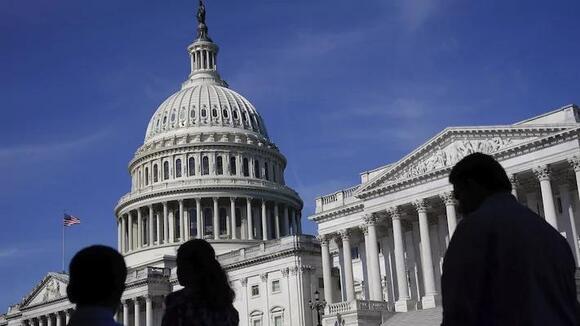
The Supreme Court’s decision to overturn the “Chevron deference,” which gave bureaucratic agencies enormous power to determine how to implement laws, has been widely celebrated by conservatives as a blow against federal regulatory overreach. But unless Congress reasserts its primacy in regulatory policy, the end of Chevron may simply shift the most important economic decisions from unelected bureaucrats to unelected judges.
The best solution is the Regulations from the Executive in Need of Scrutiny Act, which requires affirmative approval in Congress for any economically significant regulation before it can take effect. This bill has passed the House half a dozen times, including twice in the current Congress, once standalone and once as part of the House's first proposed debt ceiling legislation, but it has never moved forward in the Senate. Senate candidates should promise to change that.
For decades, many of the most important economic policy questions were decided not by elected legislators in Congress, as the Constitution envisions, but by unelected bureaucrats. The first point of departure was in the early 1970s with the passage of the Clean Air Act, Clean Water Act, National Environmental Policy Act, and Endangered Species Act. The second was in 2010 with the passage of the Patient Protection and Affordable Care Act — an unfinished discussion draft that was enacted into law and then rewritten wholesale on the fly by administrative diktat.
The Supreme Court signed off on Congress's abdication of its legislative role through the Chevron decision, which created broad deference to agency actions. The professional Left invested heavily in control of the bureaucracy and ratcheting up government control over the economy by locking in their gains via consent decrees that were difficult for Republican administrations to reverse.
Members of Congress complain a lot about the bureaucracy, but we suspect a lot of them secretly enjoy outsourcing the real decision-making. Otherwise, they wouldn’t keep doing it.
The REINS Act would change that. The bill didn’t come from lobbyists, think tanks, or so-called experts in Washington, D.C. It came from a veteran, former judge, and longtime political activist named Lloyd Rogers in Alexandria, Kentucky.
In 2009, Rogers went to meet with his then-congressman, Geoff Davis. Both were outraged about an Environmental Protection Agency stormwater management consent decree that cost the three northern Kentucky counties in a consolidated sewer more than $1 billion, approximately doubling residents’ water bills. Rogers, having studied the Constitution, didn’t understand how the EPA could double his taxes without so much as a vote in Congress.
"How come you guys can’t vote on these things?", Rogers asked Davis.
Davis took the idea back to Washington and turned the idea into the REINS Act, which requires all economically significant regulations to be approved by Congress and signed by the president before they can take effect.
The bill wouldn’t stop all bad regulations, because Congress is, of course, perfectly capable of making bad decisions. But it would ensure that the major economic policies of the country are decided by elected officials, who can be forced to explain themselves and face their constituents at election time. It would end the "blame the bureaucrats" excuse.
When Davis and the bill's original sponsor, Jim DeMint, a former South Carolina senator, retired, Sens. Todd Young (R-IN) and Rand Paul (R-KY) took over as lead sponsors. When Young moved to the Senate, I, Rep. Kat Cammack (R-FL), picked up the baton in the House.
Of course, even if it passes the Senate, President Joe Biden would likely veto it. But former President Donald Trump supported it on the campaign trail and in the White House.
"I will sign the REINS Act should it reach my desk as president, and more importantly, I will work hard to get it passed. The monstrosity that is the federal government, with its pages and pages of rules and regulations, has been a disaster for the American economy and job growth. The REINS Act is one major step toward getting our government under control," Trump told us.
The end of Chevron is a moment of truth for regulatory policy. If Congress does nothing, the power stripped from agencies will accrue to unelected lawyers and judges, with unpredictable and possibly economically ruinous results. That's why voters should demand that lawmakers and candidates for Congress commit to supporting the REINS Act and take seriously the responsibility of being the legislative branch.
CLICK HERE TO READ MORE FROM RESTORING AMERICA
Kat Cammack is a U.S. representative for Florida, and Phil Kerpen is president of American Comment.
 Most Popular
Most Popular

Comments / 0